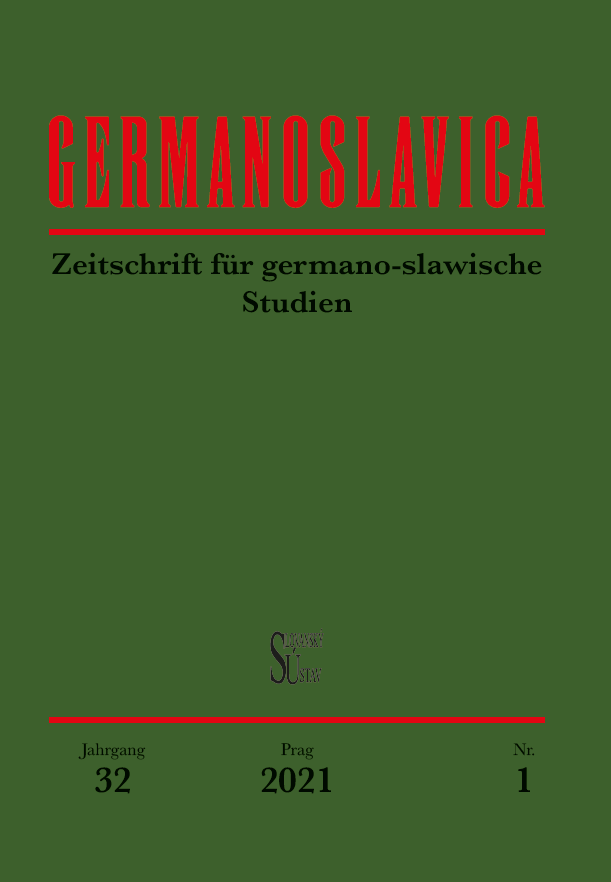Unterwegs im Begehren des (deutschen) Anderen. Andrzej Stasiuks Dojczland (2007) als psychoanalytisch-postkolonialer Text
Travelling in the Desire of the (German) Other. Andrzej Stasiuk’s Dojczland (2007) as a Psychoanalytic-Postcolonial Text
Author(s): Manuel GhilarducciSubject(s): Studies of Literature, Psychology of Self
Published by: AV ČR - Akademie věd České republiky - Slovanský ústav and Euroslavica
Keywords: desire; identity; travel literature; postcoloniality; psychoanalytic self-identification;
Summary/Abstract: The article analyzes how the identities of the Self and of the Other are articulated in Andrzej Stasiuk’s Dojczland (2007). The analysis is based on a combination of Jacques Lacan’s psychoanalysis and Homi K. Bhabha’s postcolonial theory. With the help of Lacan’s remarks on the ‘mirror stage’ and the dialectic of desire, the article regards Dojczland as a literary expression of the impossibility of affirming a stable and complete identity of the subject. This can only be articulated in relation to the Other’s desire: by functioning as a mirror, the Other lays the foundations of the identity of the subject who relates to him. But the narrator in Dojczland also claims to represent the collectivity: in his sharp ironic remarks about stereotypical features of Germans and Poles, he refers to Poland’s classical discourse of self-localisation as a land ‘in between’ (i.e. between Germany and Russia). Therefore, stereotypes and mimicry play a central role in the play with identities in Dojczland. At this point of the research, the article turns to Bhabha’s postcolonial theory and in particular to his conception of the psychological dimension of processes of mimicry and stereotypes. Because of their Lacanian basis, Bhabha’s concepts appear to be a suitable analytic tool to grasp the postcolonial and psychoanalytical features of Dojczland together, and to show their interplay.
Journal: Germanoslavica
- Issue Year: XXXII/2021
- Issue No: 1
- Page Range: 25-46
- Page Count: 22
- Language: German

